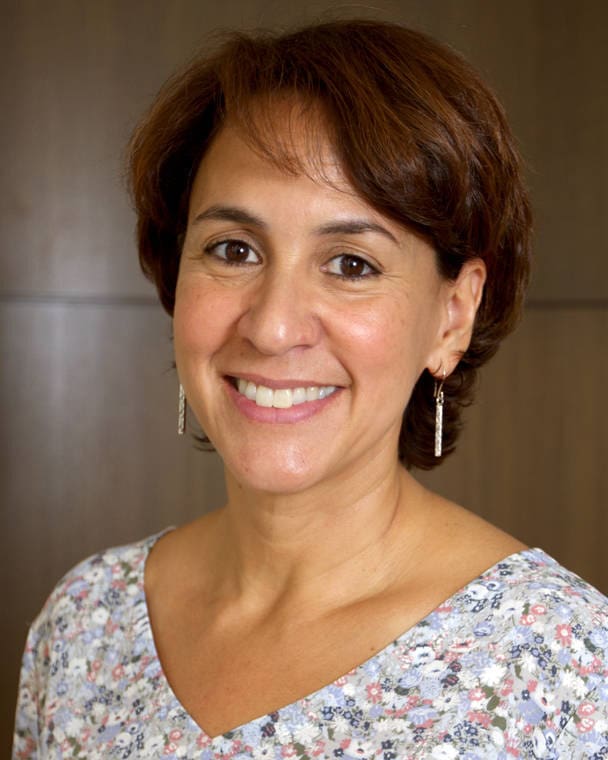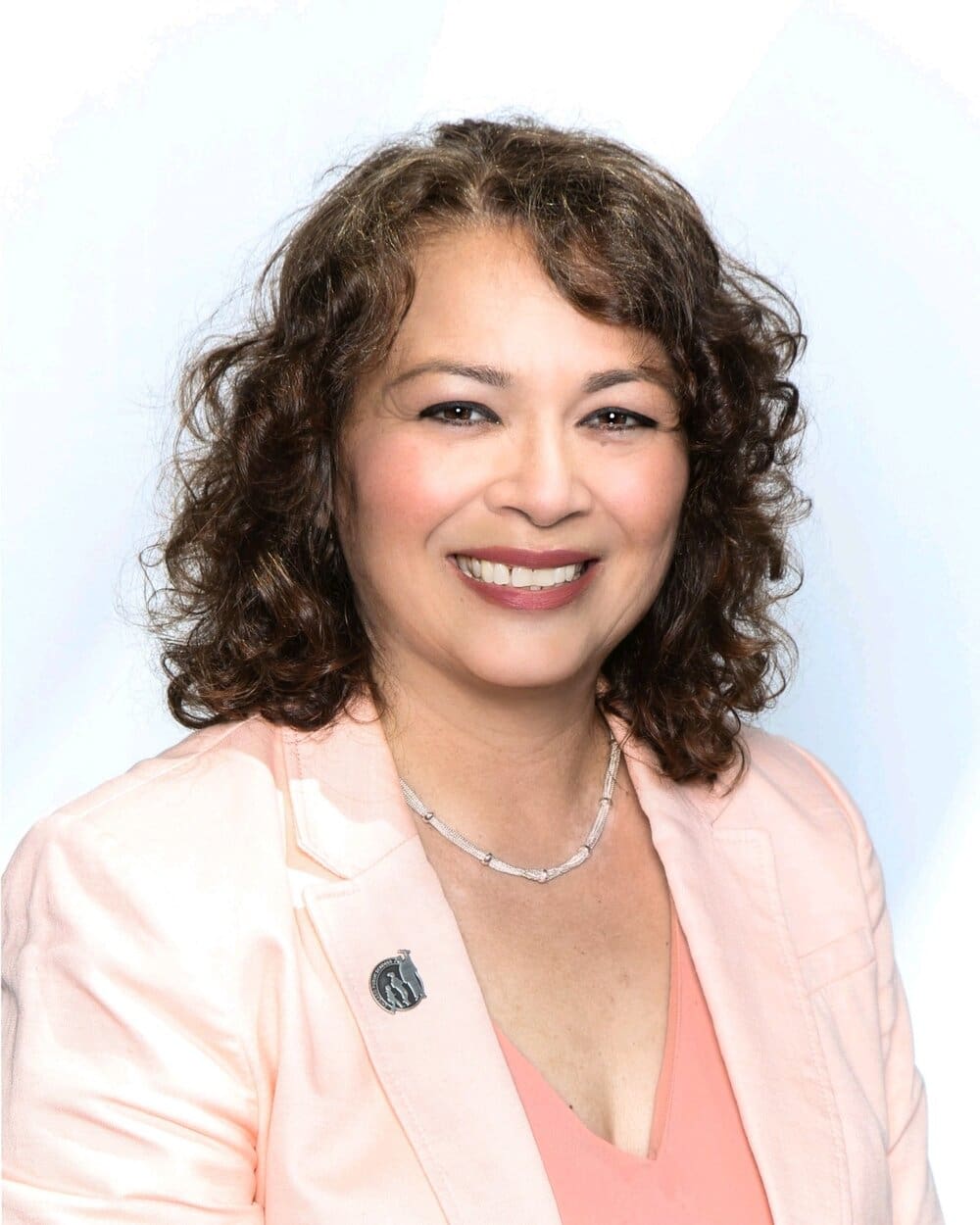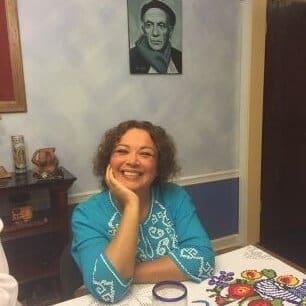 Aloha Equity Advocates!
Aloha Equity Advocates!
I am thrilled to release the first episode of The Stories We Tell newsletter, just one short month after launching Voice4Equity! In a nation where only 20% of businesses are owned by women and only 19% of women-owned businesses are owned by women of color, this moment is a personal point of great pride. Be sure to check out my conversation with Minerva Garcia-Sanchez, Ed.D., which took place at the recent ALAS National Summit.
I identify myself as a person who grew up Bronx. That identify comes with all of the hardships of the 1970s and 80s, but also with the beauty and benefits of being raised in a culturally diverse community that worked together to figure out how to survive and thrive, despite our common condition of poverty. We were multilingual, multicultural, multi-religious and just all out colorful. Our shared street language was mired in the complex cultural context and history of the South Bronx.
As a nation, we can look around our own professional fields, turn on the nightly news, and follow the protests on the streets to know that while we have come a long way in seeking racial and gender equity, there is so much further still to go. Stubborn resiliency is our call to action, and onward we must march to continue to mitigate the conditions that negatively affect so many women, particularly women of color. Women like Phyllis Wallace were trailblazers for labor rights as she reminded us about the economics of poverty. I wrote about her story in this month’s blog.
Gender inequity is an economic issue and it shows up in the disparate share women bear in child care costs, health care, and elder care, on top of the accumulated cost of wage inequities. Women in this nation are still paid less than men for comparable work at about .88 per every dollar earned by a man. For a black or Hispanic woman this averages to $1M of lost wages and pensions over the course of her career. I don’t know about you, but I didn’t volunteer to be paid less.
There is so much to talk about, and I hope that as a woman leader, an aspiring leader, and as a male leader who is a champion for gender and racial equity, that you will engage deeply with Voice4Equity. Our mission is to work together to disrupt years of systemic bias and inequities by intentionally supporting women to expand the diversity of voice through strategic leadership and equity policies.
You may be wondering about the name of the newsletter. I am a believer in the power of personal stories. They connect us. In fact, there are moments in our lives where we meet a person, and somehow, so unexpectedly, something they share with us gets embedded in a meaningful way and changes us. The miracle of the passerby story that impacts our personal journey, is the inspiration for this newsletter. I hope that this will be a reminder to keep ourselves open to hear each other’s stories and allow ourselves to be touched by the resilience, faith, love and hope that we can receive from a moment shared in passing, unexpectedly.
Our voice is about our story.
This is why I am so excited about our Girls Policy Network initiative – creating a national network of high-school girls who are trained to lead equity policy work. We are working with school districts around the country now. Learn more here, and get involved!
Mahalo,
Dr. Christina Kishimoto
DR. MINERVA GARCIA-SANCHEZ IS A VOICE FOR EQUITY
 Humility in the superintendent role is a superpower. It is the ability of the chief executive officer to empower others, to create collaborative decision-making structures, to bring a mindset of diversity of voice at the policy table. It is also about clearly seeing their leadership impact on those they serve and thus serving selflessly. Dr. Minerva Garcia Sanchez, Superintendent of the DeKalb Community Unit School District in Illinois (DCUSD 428) has this superpower.
Humility in the superintendent role is a superpower. It is the ability of the chief executive officer to empower others, to create collaborative decision-making structures, to bring a mindset of diversity of voice at the policy table. It is also about clearly seeing their leadership impact on those they serve and thus serving selflessly. Dr. Minerva Garcia Sanchez, Superintendent of the DeKalb Community Unit School District in Illinois (DCUSD 428) has this superpower.
Minerva attributes who she is to the loving yet strict multigenerational Mexican family she was born into, and the tight-knit Chicago community where she was raised. Families watched out for one another in the community. Being bilingual was a strength. Faith, joy and hard work were shared core values of familia en la comunidad. Those core values paid off as Minerva attributes that culture of care that surrounded them in providing the support necessary to produce educators, doctors and lawyers in her family. Minerva and her husband today have three adult sons that are Spanish speakers, and she describes them as “very Latino and very American.” “I love when the boys come over and we are eating carnitas and watching soccer as a family – that’s pure gold right there.”
She is proud that great success did not require giving up their language, history, nor culture, which is important to who she is as a leader. She believes students need a sense of safety, belonging, care and joy that comes from honoring them authentically within the curriculum, the school culture and the empowerment of student voice.
Despite the loving family and community support that allowed Minerva to be herself and to develop a strong self of self worth and focus, the climb to the Superintendency was not easy. “Sometimes I thought – me, curly hair, brown skin, a woman! Are you kidding, I’m not going to get this.” Her story is not unlike that of many other women of color who receive poor post-interview feedback by search firms led primarily by white men who require long proof points for women and provide generalized comments about misfit with desired districts. “I found myself several times as one of two or three finalists, always the only woman, and the man was always selected.” Minerva further explains, “Even though there are more women in the field of education, men tend to be the ones to rise to the top first.” Minerva speaks to the gatekeeping that happens by search firms who speak up about the promising skills of male candidates that sometimes can jump from the Principal role to the Superintendent role, while women are expected to take a long, linear path. Minerva herself was a teacher, assistant principal, principal, Deputy Chief of Schools, Chief of Schools, and today Superintendent, and despite this pathway of proven success did not find that she was represented in the same way that her male peers. It often remains an unspoken truth, for fear of being blocked from executive leadership advancement systems that are still predominantly controlled by white male leaders with non-diverse staff. Consider how many Superintendent search firms are owned and led by people of color and women in the U.S. One for the former and one for the latter.
But as Minerva hit the street holding meet and greets with the community in DeKalb, her experience was nothing but welcoming. The focus among parents was on quality education and opportunities for their children. It warmed her heart though when she heard, “Es una mujer! Es una Latina!” She questions why they feel that excitement. What is it that they are expecting from her? What message does her serving in this executive seat provide that was missing in the community?
 Minerva describes Latino leaders as storytellers, leaders who bring understanding by sharing the stories of the people whose paths they cross and are blessed to know. She views this both as part of who she is but also as an opportunity to bring cultural context to the work. As she moved to higher positions in her career path, she was encouraged to focus less on the stories. Minerva and a friend also seeking her first Superintendent position saw this as a challenge and opportunity to take on leadership preparation for Latino leaders who were being given misleading advice about how to advance. “It’s hard to hear people tell us that we weren’t good enough…this is as far as you are going” She and a friend refused to accept this negative reflection on Latino applicants. At a dual language conference they rented a room and posted an invitation for Latinos interested in leadership. Not knowing if anyone would show up, they found themselves in a crowded room with 200 educators. The field was hungry to network with others who understood the challenges, the biases, and survival skills necessary when you “have an accent and brown skin.” People were looking for support and so Minerva and her colleague built a network of successful leaders who could help. Today they are supporting Latinos seeking their first Principal role, a move from Principal to their first mid-level central office leadership and now as sitting Superintendent supporting aspirants. Minerva sees this as “doing what has to be done for kids” who should themselves in their leaders.
Minerva describes Latino leaders as storytellers, leaders who bring understanding by sharing the stories of the people whose paths they cross and are blessed to know. She views this both as part of who she is but also as an opportunity to bring cultural context to the work. As she moved to higher positions in her career path, she was encouraged to focus less on the stories. Minerva and a friend also seeking her first Superintendent position saw this as a challenge and opportunity to take on leadership preparation for Latino leaders who were being given misleading advice about how to advance. “It’s hard to hear people tell us that we weren’t good enough…this is as far as you are going” She and a friend refused to accept this negative reflection on Latino applicants. At a dual language conference they rented a room and posted an invitation for Latinos interested in leadership. Not knowing if anyone would show up, they found themselves in a crowded room with 200 educators. The field was hungry to network with others who understood the challenges, the biases, and survival skills necessary when you “have an accent and brown skin.” People were looking for support and so Minerva and her colleague built a network of successful leaders who could help. Today they are supporting Latinos seeking their first Principal role, a move from Principal to their first mid-level central office leadership and now as sitting Superintendent supporting aspirants. Minerva sees this as “doing what has to be done for kids” who should themselves in their leaders.
Despite all of her great advancements and successes, Dr. Garcia Sanchez shares, “I am an unfinished leader. I’m still working on myself.” As a continuous learner, well grounded in who she is, where she came from, seeking a collective table of voices to bring excellence within the reach of all students, Minerva’s superpower of humility is in fact a powerful asset.
Dr. Minerva Garcia-Sanchez is the first woman Superintendent of the DeKalb Community Unit School District 428 in Illinois, effective July 1, 2021. DCUSD 428 is a highly diverse school system where students of color are the majority, with a rich multilingual and multicultural history. Previously she was a leader and teacher in the Chicago Public Schools system.

